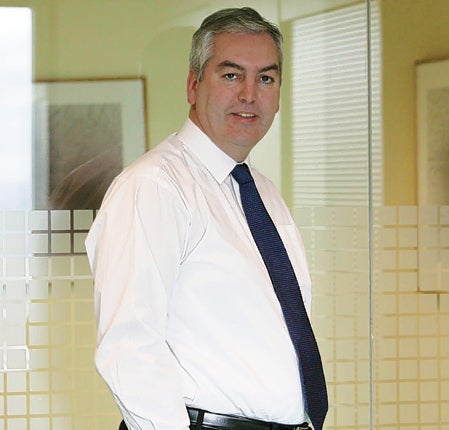FSA fines shares 'cheat' a record £2.8m

He claims to live in a former council house, holidays in the South of France only thanks to the generosity of friends and says even when his business (now in liquidation) was at its height, it was only a tiny operation.
And yet Simon Eagle was yesterday hit with a £2.8m penalty, the 10th biggest that the City watchdog has handed out, bigger even than multinationals such as Credit Suisse (£1.75m in April) or Standard Life (£2.45m in January) have received this year. The charge – made up of a £1.5m fine and £1.3m of "disorgement" of ill-gotten gains – is the biggest yet imposed on an individual.
The 51-year-old former stockbroker was found guilty of share ramping and branded a "dishonest cheat" by the Financial Services Authority's head of enforcement Margaret Cole. He was also banned from working in the City.
Yesterday the watchdog indicated that it was prepared to push Eagle into bankruptcy if he failed to pay up. He has already been discharged from bankruptcy once and has been ordered to pay by 1 June or face proceedings.
Eagle – who is listed as the director of 19 companies, most of which are either dormant or in liquidation – is the latest victim of the FSA's take-no- prisoners policy. It follows widespread outrage over the activities of City miscreants in the wake of the damage London's financial centre inflicted on the economy during the banking crisis and a Tory threat (now rescinded) to abolish the watchdog.
A former commodities trader, who had worked in the City since 1978, Eagle bought loss-making stockbroker SP Bell in 2003 and used it to hatch a scheme to ramp the shares of Fundamental-E Investments, a so-called "shell" company listed on the Alternative Investment Market, the London Stock Exchange's junior division for small and fast growing firms. He had intended to use Fundamental-E – which had no operations – as a vehicle to buy up other firms, but needed to find people to invest alongside him.
Having agreed to effectively take over the company, Eagle was faced with the dilemma of how to find buyers for 75 per cent the shares in a company in which there had been little interest. He did this by selling millions of pounds worth of them to SP Bell clients, sometimes without their knowledge. In fact some had never even heard of the company. Eagle operated a "rollover" scheme where the shares were bought on credit by one client and then sold to another (also on credit). Not only did this generated commissions and fees of £1.1m, it gave the impression that the shares were in high demand because the trades showed up on dealing screens.
But the unusual trading was picked up by the London Stock Exchange which suspended the shares and led to the involvement of the FSA.
A subsequent takeover of SP Bell suddenly collapsed but by then, Mr Eagle had received a commission of more than £1.2m from previous owners of Fundamental-E, and had also joined the company's board.
Since the FSA's involvement, the process has dragged on as Eagle – who could not be reached yesterday – had repeatedly lodged intentions to appeal without actually taking action, although he now appears to have given up the ghost. That has proved a costly decision – the FSA usually cuts its penalties by up to a third for those who agree to admit offences early.
Stockbroker Winterflood Securities, which handled many of the trades, has already been fined £4m for its part in the affair, even though it says it was unaware of any wrong doing while clients ultimately secured their return of their funds through legal action.
Subscribe to Independent Premium to bookmark this article
Want to bookmark your favourite articles and stories to read or reference later? Start your Independent Premium subscription today.

Join our commenting forum
Join thought-provoking conversations, follow other Independent readers and see their replies